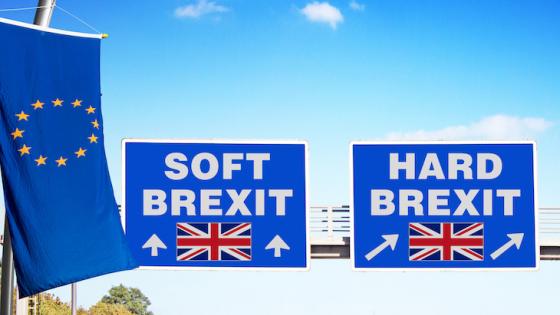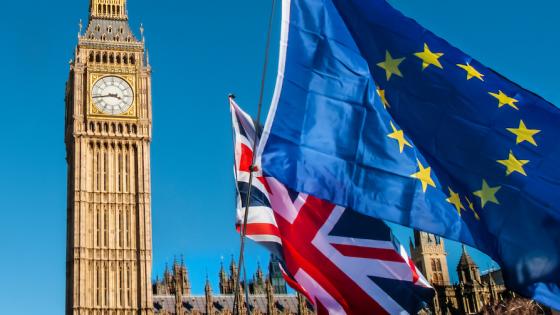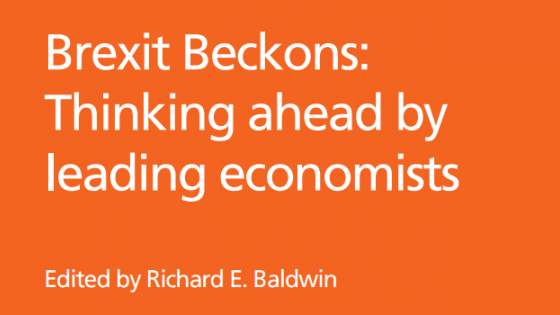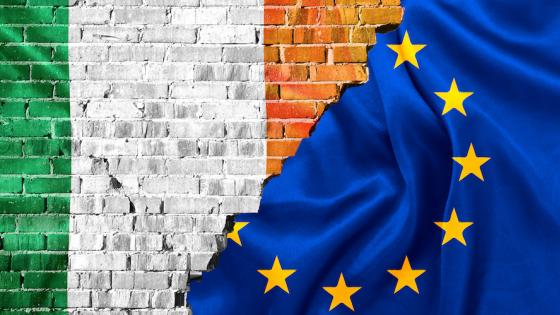Why the Irish backstop doesn’t work
Ratification of the draft UK/EU Withdrawal Agreement (WA) is a stage game in a dynamic bargaining process. Only two long-term outcomes of this bargaining game exist: either the Irish land border between Northern Ireland and the Republic of Ireland stays open, or border controls are introduced. EU negotiators are strongly committed to keeping the Irish border open. The position of the UK is less clear. Regaining national control over trade policy and transitioning to unilateral free trade seems to carry considerable importance.
An open border can either be implemented with full UK membership in a customs union, or with differential treatment of Northern Ireland and the British mainland. The WA implements the former of these open border equilibria, albeit with a time limit. The backstop, to kick in if no long-term agreement has been reached within the deadline, implements the latter.
Adoption of the WA with the backstop clause would make a customs union with differential treatment of Northern Ireland and the rest of the UK quite likely. UK lawmakers widely believe that the EU would have an incentive to delay further negotiations in order to fall back on the backstop. Hence, the current proposal is deemed unacceptable to the UK and has been roundly rejected by Parliament.
Why just dropping the backstop won’t work either
The British prime minister has been given a mandate to renegotiate the WA with the EU so as to limit or abolish the backstop. However, a WA without the backstop creates incentives for the UK to delay future negotiations until the WA expires, and then implement a hard Brexit. Hence, the EU has flatly rejected limiting or abandoning the backstop. With neither side showing signs of giving in, negotiations are likely to break down, leading to a hard Brexit without a deal. Of course, last-minute compromises are always possible, but it is too risky to bet on such events.
Applying a quick fix until a long-term solution is found?
The WA itself carries a time limit. Its transitional provisions are set to expire at the end of 2020, with the option of a two-year extension. Until then, the EU’s Four Freedoms (mobility of goods, services, people, capital) are fully preserved. After that, a future free trade agreement on goods is envisioned. The only binding agreement is the Irish backstop, which aligns Northern Ireland to the EU more closely than the rest of the UK in case no long-term agreement is found. To remove the incentive problem in the negotiations for a long-term solution, a possible quick fix would be to remove both the backstop and the WA’s current time limit on the mobility of goods and capital, i.e. on the preservation of two of the four freedoms during the transition period. This provisional arrangement would then keep the EU and the UK in a joint customs territory after 2020, however without the discrimination between Northern Ireland and the rest of the UK that characterises the backstop.
Why a more ambitious long-term solution is needed
The quick fix would keep the UK in a condition very close to passive membership in a customs union. This would meet with criticism in the UK. At the same time, it would keep the UK very close to the European single market for goods. This would be criticised in the EU for coming close to cherry-picking. While the quick fix might work in the short term, a more ambitious solution is required in the long term. It seems difficult to imagine that the UK could accept being passively tied into a customs union with the EU indefinitely. Such a customs union exists between the EU and Turkey, where Turkey is a mere rule-taker and EU arrangements with third countries are not reciprocal. As a model for future UK/EU relations, this is not good enough. A minimum requirement appears to be active UK participation in making the rules of a future customs arrangement.
Dropping the ‘red lines’: A European Customs Association
We propose a post-Brexit relationship between the UK and the EU that ensures close economic ties and avoids a hard Irish border. Our aim is not to define a first-best solution (which we believe would be British membership in a reformed EU) but rather a politically feasible approach that minimises economic costs. Political feasibility means that for both parties, accepting the proposed model strictly dominates a no deal scenario. The core of our proposal foresees a permanent participation of the UK in a newly created European Customs Association (ECA). This agreement creates a space with a common external trade policy that gives the UK full and active participation instead of merely being a rule-taker. The ECA would cover areas related to trade in goods that are currently falling under the exclusive competence of the EU in Brussels.
The permanent nature of the ECA does away with the need for a backstop. However, our solution requires compromises on both sides. The UK would need to yield on some of its red lines: it must, at least partially, forego trade policy autonomy, and accept a dispute settlement mechanism related to the ECA. In return, the UK should have full voting rights in the ECA. Moreover, it would keep the option of running independent trade policies in all areas not covered by the ECA – in particular in services, where the British economy has its strongest comparative advantage. Details of the future cooperation with the EU would be negotiated during the transition period, in which the WA still applies. The EU in turn would need to abandon its indivisibility doctrine on the four freedoms, offering the UK to participate in product market integration but allowing it to make its own choices in other areas. We believe this step is easy to take, as it is already implicit in the WA’s political declaration in its existing form.
Architecture of the European Customs Association
Our model stipulates that both parties create a new European Customs Association, which is constructed similarly (and could well be identical) to the EU Customs Union. Our paper “Hard Brexit Ahead: Breaking the Deadlock” lists the provisions in detail. The most important of these are:
- The UK has voting rights in the ECA, as do all other member states. Together with the other members of the ECA it mandates the EU Commission to negotiate trade agreements with third parties.
- Decisions are taken with double majority as defined in the Lisbon Treaty. An instance of judicial oversight supervises all law- and policy-making in the field of trade.
A hard Brexit is in no-one’s interest. It could cause irreparable political and economic damage. Both the UK government and the EU Commission should rethink their ‘red lines’, return to the negotiation table, and remove the time limits that have created a multi-stage bargaining process which lacks subgame perfection and leads to unintended outcomes. The UK would need to accept economic realities and seek close trade cooperation with the EU. The EU would need to accept UK autonomy in fields other than goods trade, and respect its territorial integrity. Under the proposed new ECA arrangement, there would be no passive rule-taking but instead continuing active involvement of the UK in European trade policy, with high mutual benefits.








